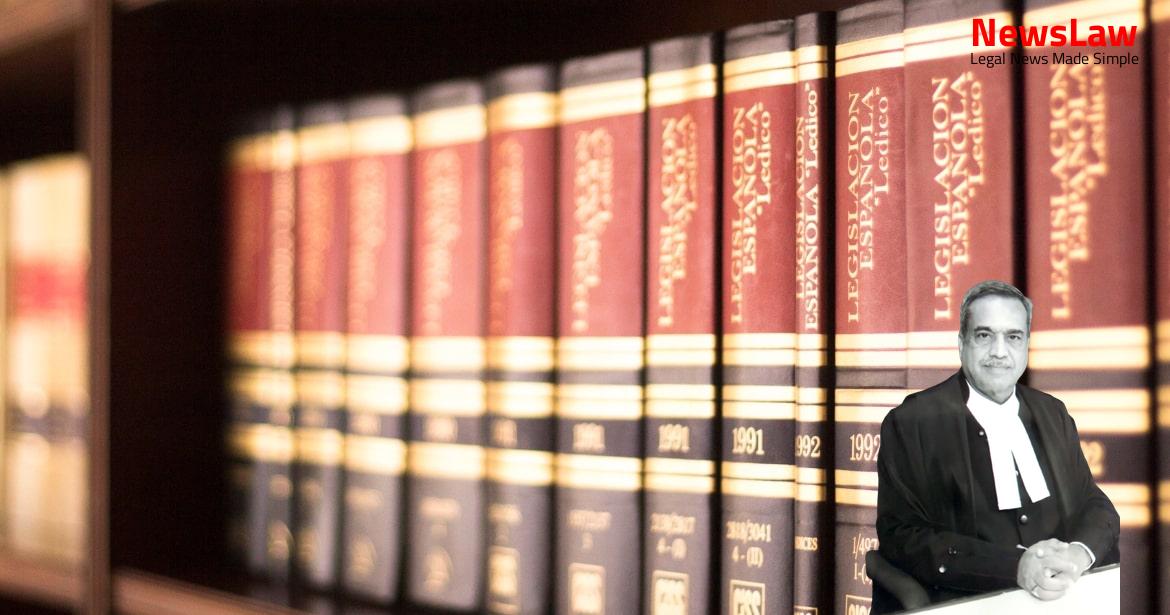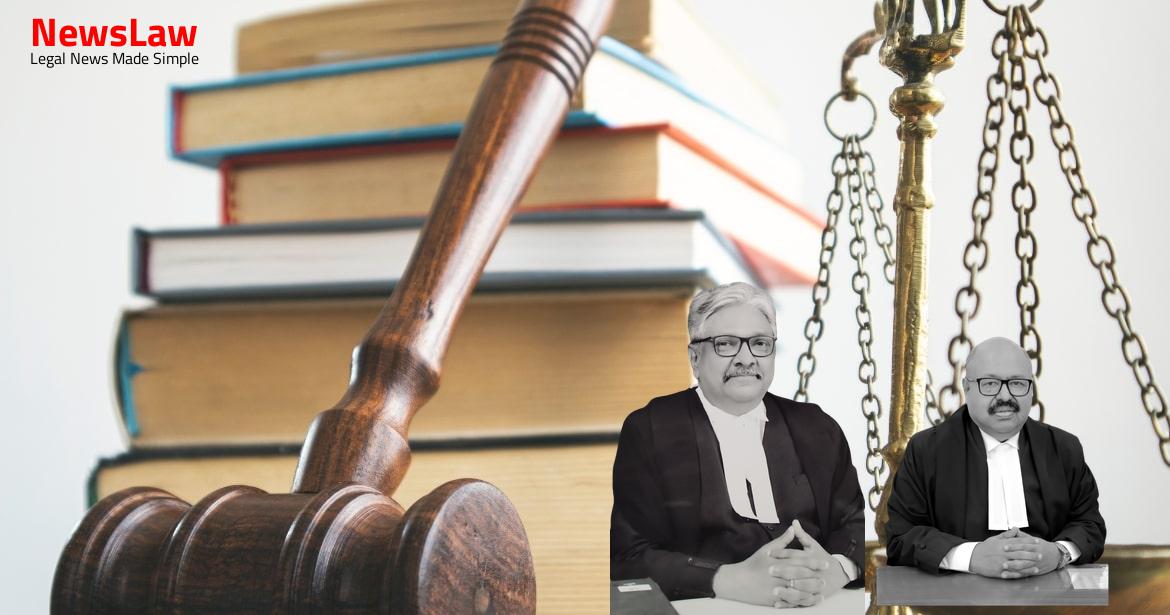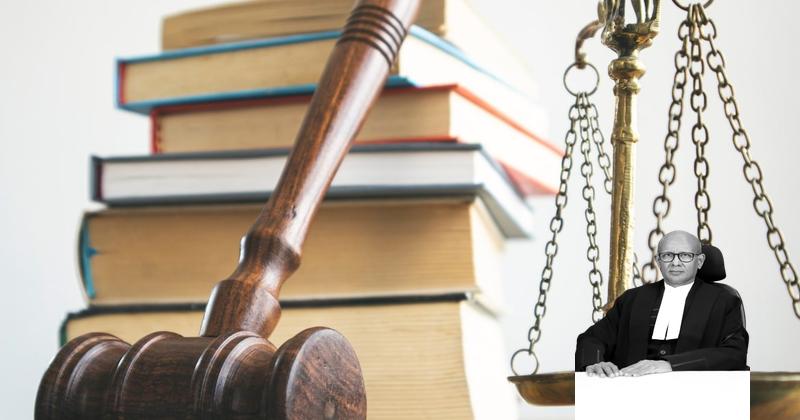This appeal by Konkan Railway Corporation Limited challenges the legality of the order passed by the Division Bench of the High Court while exercising jurisdiction under Section 37 of the Act. The decision of the Single Judge of the High Court was appealed by the Respondent under Section 37 of the Act, and the Division Bench of the High Court, by the order impugned herein, partly allowed the appeal in the following manner. As per the extant policy in Jammu and Kashmir, the Toll Tax as applicable on the date of the submission of tender, that is 31.05.2004, was Rs. Relevant 4 part of Clause 5 of Chapter 5, titled ‘Sales Tax, Turn Over Tax/Local Tax, Duties etc’, is as under: “Clause 5.1 Sales Tax/Turn Over Tax/Local Tax, Duties Etc.
Clauses 7.1.1 and 7.1.2 from Chapter 7, titled ‘Price Variation’, are as under: “ Clause 7.1.1
Also Read: https://newslaw.in/supreme-court/dividing-violations-curability-of-defects-in-election-petitions/
The rates quoted by tenderer and accepted by the Corporation shall hold good till the completion of the work and no additional, individual claim shall be admissible on account of fluctuation in market rates, increase in taxes/any other levies/tolls etc. Clause 11.7, in Chapter 11, titled ‘Schedule of Items, Rates & Quantities – Bill of Quantities’, is as follows: “ Clause 11.7
The rates and prices tendered in the priced Bill of Quantities, shall except in so far as it is otherwise provided under the contract, include all construction plant, labour, supervision, materials, all temporary works, false works, all leads and lifts, erection, specified finishes, maintenance, establishment and overhead charges, insurance, profits, foreign taxation and levies, taxes, royalties and duties together with all general risks, liabilities and obligations set out or implied in the contract and including remedy of any defects during the Defects Liability Period.” The Decision of the Arbitral Tribunal : The Arbitral Tribunal interpreted the contract and construed Clause 5.1.2 of the contract as limited to taxes that could be raised by the Respondent-Contractor directly on the Appellant, as opposed to taxes that formed part of the materials quoted in the ‘Schedule of Items of Rates – Bill of Quantities’.
Accordingly, the Arbitral Tribunal held that the claim for recouping increased tax liability for individual or specific items, in this case, the imposition of entry tax, could not be reimbursed under Clauses 7.1.1 and 7.1.2. The Division Bench rejected the Arbitral Tribunal’s and the Single Judge’s interpretation of Clause 5.1.2 of the contract and came to the conclusion that the said clause will also include indirect taxes such as service tax, GST, Works Contract Tax, etc. In view of its conclusion, the Division Bench did not find it necessary to refer to Clauses 7.1.1 and 7.1.2 relating to price variation clauses, as the claims were justified under Clause 5.1.2 8 itself. They submitted that the Division Bench of the High Court exceeded its limited jurisdiction under Section 37 of the Act by reinterpreting the contract and substituting its view for the Arbitral Tribunal’s, assuming the role of a court of appeal.
They added that Clause 11.7 of the contract expressly indicates that the prices mentioned in the Bill of Quantities are inclusive of all costs that are liable to be incurred in the execution of the contract. The Arbitral Tribunal held that Clause 5.1.2 operates in a separate field, i.e., it operates in the field of taxes directly payable by the Corporation to the Contractor.
1 They submitted that undoubtedly, Clauses 5.1.2 and 7.1.1 operate in separate fields, i.e., Clause 5.1.2 of the Special Conditions of Contract is a special clause that deals with taxes and provides for reimbursement on account of increase of taxes by the Corporation. Scope of interference by a court in an appeal under Section 37 of the Act, in examining an order, setting aside or refusing to set aside an award, is restricted and subject to the same grounds as the challenge under Section 34 of the Act. We need to be cognizant of the fact that arbitral awards should not be interfered with in a casual and cavalier manner, unless the court comes to a conclusion that the perversity of the award goes to the root of the matter without there being a possibility of alternative interpretation which may sustain the arbitral award. The courts need to be cautious and should defer to the view taken by the Arbitral Tribunal even if the reasoning provided in the award is implied unless such award portrays perversity unpardonable under Section 34 of the Arbitration Act.” In the present case, the Arbitral Tribunal interpreted the contractual clauses and rejected the Respondent’s claims pertaining to Disputes I, III and IV.
2000/- and at the time of contract, the goods were not subject to Sales Tax, but subsequently during the execution of the work, the State subjected such sale of goods to Sales Tax, at the rate of 5%, the contractor will be entitled to receive under clause 5.1.2, the Sales Tax at 5% on the price of Rs. It is clear from the contract that in regard to such components of a rate, claimant is not entitled to seek reimbursement of any increase in price or taxes and all that it will be entitled to, will be an increase that is permitted in accordance with the formula in the price variation clause.
Also Read: https://newslaw.in/?p=666
That is why clause 11.7 of BoQ provides that the rates/prices shall include all taxes and 7.1.1 clauses and 7.1.2 clearly provide that rates quoted by the tenderer and accepted by the KRCL, shall hold good till the completion of the work and no additional individual claim shall be admissible on account of increases in tax or other levies except for the provision made by way of price variation clause.
The reason for upholding the decision of the Tribunal is not that the Single Judge exercising jurisdiction under Section 34 of the Act is in complete agreement with the interpretation of the contractual clauses by the Arbitral Tribunal. Equally, there is another way of looking at these three clauses, and that is : clauses 7.1.1 and 7.1.2 make it clear that no increase in tax in the case of any component forming part of BoQ rates, which was considered by the contractor for quoting his rates for any particular item, should be allowed to the contractor; it is only when particular taxes were actually to be paid on the deliveries of the contractor, these would be included for reimbursement by the employer under clause 5.1.2. There is some law to suggest that if an Award does not construe the contract as a whole then it is not a possible view and it is perverse [South East Asia Marine Engineering and Constructions Ltd v Oil India Ltd, (2020) 5 SCC 164; Patel Engineering Ltd v North Eastern Electric Power Corporation Ltd, (2020) 7
SCC 167].
Also Read: https://newslaw.in/supreme-court/release-of-petitioner-based-on-juvenility-plea/
If this is the principle applicable to exercise of jurisdiction under Section 34 of the Act, a Division Bench exercising jurisdiction under Section 37 of the Act cannot reverse an Award, much less the 17 decision of a Single Judge, on the ground that they have not given effect and voice to all clauses of the contract.
North Eastern Electric Power Corporation Limited are concerned, in both the cases, this Court affirmed the interference by a court exercising jurisdiction under Section 37 of the Act, with the concurrent findings of the Arbitral Tribunal as well as the court under Section 34 of the Act, for good and valid reasons. The High Court, exercising jurisdiction under Section 37 of the Act, and this Court, found that the Arbitral Tribunal incorrectly construed the ‘Change in Law’ clause as akin to a force majeure clause and allowed the claims. Durga Trading Corporation : “ Arbitration is a private dispute resolution mechanism whereby two or more parties agree to resolve their current or future disputes by an Arbitral Tribunal, as an alternative adjudication by the courts or a public 19 forum established by law.
of Police [(1999) 2 SCC 10 : 1999 SCC (L&S) 429], it was held: (SCC p. If a decision is arrived at on no evidence or evidence which is thoroughly unreliable and no reasonable person would act upon it, the order would be perverse. The Award of the Arbitral Tribunal and the decision of the Single Judge of the High Court under Section 34 of the Act cannot be termed as perverse or patently illegal as concluded by the Division Bench of the High Court. [Dr Dhananjaya Y Chandrachud]
Case Title: KONKAN RAILWAY CORPORATION LIMITED Vs. CHENAB BRIDGE PROJECT UNDERTAKING (2023INSC742)
Case Number: C.A. No.-002903-002903 / 2023



